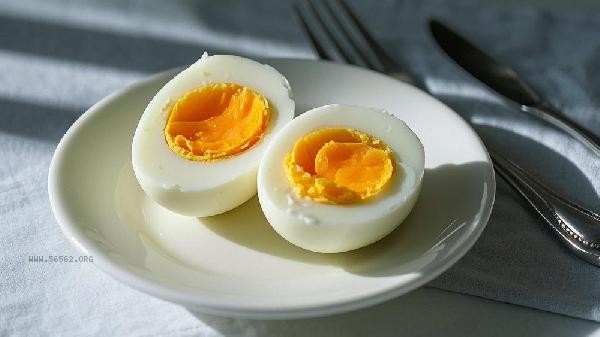Boiling and bursting eggs is usually caused by excessive pressure difference between the inside and outside of the eggshell or abnormal structure of the eggshell. There are mainly reasons such as micro cracks in eggshells, severe boiling water, excessive heat, insufficient freshness of eggs, and rapid temperature changes.

1. Microcracks in Eggshells
Eggs may develop invisible microcracks during transportation or storage. When water is boiled and heated, the egg whites expand and overflow from the cracks, causing the eggshell to burst. When choosing eggs, gently shake them and listen for any liquid shaking sound to avoid using eggs with obvious cracks.
2. Intense rolling of boiling water
When water boils, bubbles move violently and collide with eggshells, which may cause local pressure concentration. It is recommended to use medium to low heat to keep the water temperature in a slightly boiling state, or add a small amount of salt to the water to lower the boiling point and reduce water flow impact. Using a deep pot and ensuring that the water completely covers the eggs also helps to evenly heat them.
3. Excessive heat
Boiling over high heat can cause a sudden increase in steam pressure inside the egg. The correct approach is to put cold water in a pot and slowly heat it up over medium heat, allowing the eggs to be evenly heated from the inside out. Once the water boils, immediately reduce the heat to low and cook for 8-10 minutes. electromagnetic stove users are recommended to use power below 800W.

4. Insufficient freshness of eggs
Eggs stored for too long have an enlarged air chamber, resulting in an increase in the pH value of the egg white and a decrease in viscosity. When heated, they are more likely to break through the eggshell. The probability of fresh eggs sinking to the bottom of saltwater is higher, and this method can be used for identification. It is recommended to refrigerate and store for no more than 15 days in summer.
5. Rapid temperature difference
Refrigerated eggs placed directly in boiling water may burst due to thermal expansion and contraction. It should be taken out in advance for reheating, or a needle should be inserted into a small hole at the blunt end of the eggshell to release pressure. When soaking in cold water after cooking, it is also necessary to avoid rapid cooling with ice water. It is safer to transition to warm water.

To prevent egg bursting, attention should be paid to temperature control throughout the process. Eggs taken out of the refrigerator are recommended to be left at room temperature before cooking. When cooking eggs, the water should be sufficient, with the water level at least 3 centimeters above the egg. Adding half a spoonful of white vinegar can help solidify the egg whites. Using a specialized egg boiler can better control the heat, and although boiled eggs do not affect consumption, nutrients will be lost to the water. Eggs should be stored with the blunt end facing upwards in daily storage to avoid vibration and direct sunlight. When purchasing, pay attention to checking the production date. If frequent boiling occurs, it is recommended to check the quality of the eggs or replace the heating equipment.









Comments (0)
Leave a Comment
No comments yet
Be the first to share your thoughts!